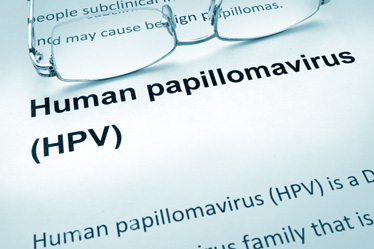The Human Papilloma Virus (HPV) is the most common sexually transmitted disease (STD) in the world. About 79 million Americans are currently infected with HPV and approximately 14 million new infections occur nationwide every year. In most cases the immune system is able to fight the virus off without lasting side effects or complications, but sometimes HPV can cause serious health problems.
What is HPV?
HPV is not a single virus. There are hundreds of types of Human Papilloma Virus ranging from harmless warts people commonly get on their hands and feet to more dangerous sexually transmitted varieties. Most types of the virus have no outward symptoms with the exception of the HPV type that causes genital warts. Other types of HPV causes no visible symptoms, but cause lesions that can become cancerous.
Transmission and Risk Factors
Sexually transmitted HPV is spread when a person has vaginal, anal or oral sexual intercourse with a partner who is already infected. Both men and women can contract the disease, and symptoms can take years to become apparent. It is also possible to be infected with more than one type of the virus at a given time. Any person who is sexually active can get HPV, but some factors can increase risk.
HPV risks include:
- A history of previous or persistent HPV
- Sexual intercourse with multiple partners or having a partner who has sex with multiple partners
- Sexual activity at an early age
- Weakened immune systems
- Skin to skin contact with the virus; i.e. genital warts
- Tobacco use
High Risk Human Papilloma Virus and Cancers
 There is an established link between certain types of HPV infections called “high risk Human Papilloma Virus” and cancer. Cervical cancer affects the cells lining the cervix and high risk types of HPV virus are found in 99 percent of all cervical cancers.
There is an established link between certain types of HPV infections called “high risk Human Papilloma Virus” and cancer. Cervical cancer affects the cells lining the cervix and high risk types of HPV virus are found in 99 percent of all cervical cancers.
More than 12,000 women are diagnosed with cervical cancer in the US each year. If detected early it is highly treatable, but if left untreated cervical cancer can be terminal, and more than 4,000 women die of cervical cancer in the U.S. each year.
Cervical cancer is not the only kind of cancer linked to the Human Papilloma Virus. Other cancers caused by HPV infections include:
- Cancers of the vagina and vulva
- Cancer of the penis
- Cancer of the anus
- Throat cancer
- Head and neck cancers including cancer of the tonsils, the tongue or the oropharynx
Diagnosis and Treatment of HPV
With the exception of the type of HPV that causes genital warts, most strains of HPV do not present with symptoms so it is important to get screened for the virus. Women can get screened during a pap smear test. All women between the ages of 21 and 29 should receive a pap test and be screened for HPV every three years, and women aged 30 to 65 should be tested every five years.
There is currently no way to screen men for HPV and with the exception of genital warts, men do not usually present with symptoms of infection, although they can still pass the disease on to their sexual partners and develop penile, anal or oral cancers.
There is no cure for HPV, but the body’s immune system can usually resolve an infection within two years. HPV infections are not permanent, but sometimes infection persists. A person can also become reinfected with HPV after experiencing it previously.
HPV Prevention
The best way to protect against HPV is to get vaccinated. Children between 11 and 12 years of age can get vaccinated and it is possible for adults to receive the vaccination until the age of 26. There are two types of HPV vaccination, Gardasil® and Gardasil® 9. The HPV vaccination is a set of two shots and it is recommended for anyone who is or will become sexually active. People who are allergic to any of the components of the vaccine should not get vaccinated and women who are pregnant should delay receiving the HPV vaccine until after they give birth.

In addition to the HPV vaccine, people can reduce their risk of contracting HPV by using latex condoms and by not participating in risky sexual behavior with multiple partners.
Don’t Risk an HPV Infection
HPV is such a common sexually transmitted disease that most sexually active people will contract the virus in their lifetimes. Most of those infections will not cause lasting health problems, but some types can have serious consequences, so there is no need to risk infection. The HPV vaccination effectively reduces infection rates, and regular screening can diagnose and treat any dangerous complications from the virus as soon as they appear.
If you have any questions about testing for the HPV virus, HPV prevention, or treatment options for the virus, please contact Kansas City ObGyn today at This email address is being protected from spambots. You need JavaScript enabled to view it. or 913-948-9636.






